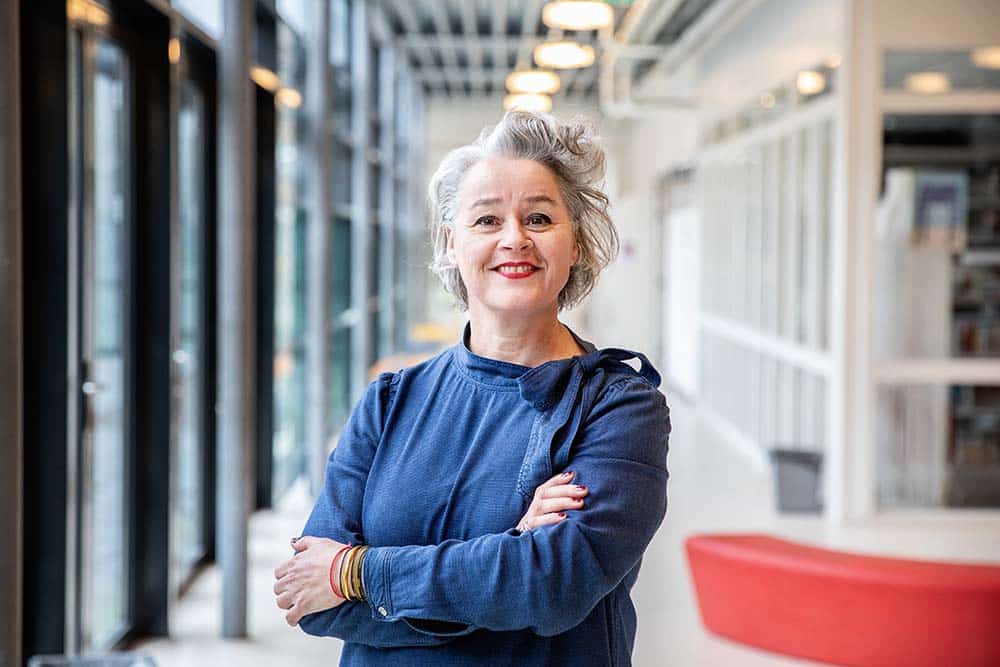Could you live a longer, happier and healthier life by learning another language? Scientists think being bilingual is good for your brain.
Words:
- Bilingualism, or being bilingual, means speaking two languages fluently. Speaking even more languages is called multilingualism.
- When something is the equivalent of something else, it means that it is its equal or on the same level.
- Supressing a language means to actively ignore it or push it away, in order to focus on something else.
- Implications is another word for effects or impact.
- The onset of something means the beginning, the moment it starts.
- Your brain consists of neural networks; these are the connections in your brain.
- A part of your brain that has a specific function is also called a region of your brain.
Video:
Watch the video from 0:00 to 01:23
1. The first speaker, Professor Li Wei, explains that speaking more than one language is good for your brain. How does that work? Fill in the correct verb in the sentence.
[…] more than one language exercises the brain, because you need to […] one language while speaking another. You will also […] yourself because you regularly need to […] between languages. This effort will help you […] better, […] problems more easily, […] your memory, and be more creative.
2. Why did the scientific study from 2007 shake the scientific community?
Watch the video from 01:23 to 02:07
3. What is cognitive reserve?
A: Cognitive reserve is having an extra amount of thinking ability that protects you from the effects of aging and cognitive diseases.
B: Cognitive reserve is when you avoid stress or cognitive challenge so that your brain doesn’t become exhausted, and you have some thinking power left.
C: Cognitive reserve is what happens to the neural networks in our brain as we get older and we gain new neural connections while learning a skill or language.
D: Cognitive reserve is the thinking ability you need to learn a new language or skill when your brain is already exhausted from other daily activities.
4. Which of these statements about cognitive reserve are true?
A: Learning a very complex skill has more chances to improve your cognitive reserve.
B: Having cognitive reserve can help prevent a stroke.
C: Speaking one language limits how much cognitive reserve you can build up.
D: You can build more cognitive reserve by learning a new skill or language, but physical skills are most effective.
E: Learning a new language builds up cognitive reserve in a unique way because of the different ways it engages the brain.
F: Cognitive reserve can help delay the onset of dementia.
Watch the video from 02:07 till 03:50.
5. What is the difference between learning a new language as a child and as an adult, when it comes to your neural networks? Finish the sentences.
If you’re learning a second language as a young child, you…
If you’re learning a language later in life, you…
6. Fill in the gaps. What did scientists at Great Ormond Street discover about the brains of early bilinguals through brain scans?
They showed more [… when they were at […] compared to children who learned another language […].
7. In this section of the video, Professor Antonella Sorace, Prof Li Wei and Dr Thomas Bak highlight the social effects of speaking more than one language. Summarise these effects in your own words.
Watch the video from 03:50 to the end.
8. The video ends by saying bilingual people have a broader experience of the world. Give your own opinion. How do you think learning English will change the way you personally experience the world?
Van de makers van All Right!, Of Course! en Taalblokken Engels
Antwoorden bekijken
Om de antwoorden te kunnen zien, moet je zijn ingelogd. Heb je nog geen account? Meld je dan nu aan! Het is GRATIS.





